Egyptian Beverages: Basic Overview
Common Ingredients
Common Preparing Methods
Drinking Etiquette
Influence and Fusion
Egyptian Beverages: Origin and Region
Cuisine
Culinary Region
Country’s Region
Classifications of Egyptian Beverages
-
Non-alcoholic Beverages
Are often enjoyed throughout the day.
Some are sold on the streets and in cafe shops.
Egyptian beverages are rooted in ancient history and rich culinary traditions. The drinking culture in Egypt is characterized by many flavorful and nutritious options that reflect the country’s diverse influences.
Key ingredients often include fruits like dates, mangoes, lemons, etc), herbs and spices such as mint, hibiscus, and fenugreek; and tea leaves. These ingredients create different drinks, ranging from sweet and fruity to herbal and slightly bitter.
However, due to cultural and religious restrictions, alcoholic beverages are less prevalent. unlike many other African-style beverages. Therefore, in the list of Egyptian beverages below, I mainly emphasize non-alcoholic ones enjoyed daily. In the past, some alcoholic drinks, like wine and beer, were very popular in the country.
Finally, I’ll show you some ideal matches of dishes and drinks in Egyptian style. So, follow me to get on the journey and discover the flavors and stories behind Egypt’s most treasured beverages!
14 Best Egyptian Beverages with Filters
Below are 14 options for Egyptian drinks, which are all non-alcoholic. Feel free to use the filter function to read the list with ease.
Tea
- Non-Alcoholic
- National
- Traditional
In Egypt, tea, known locally as “shai,” is an essential drink in daily life and culture. Egyptian tea is typically served in 2 main styles: “koshary” and “sa’idi.”
Koshary tea, common in northern Egypt, is light, often brewed with sugar, and sometimes flavored with fresh mint or lemon. Sa’idi tea, prevalent in southern Egypt, is strong and dark, brewed with a significant amount of black tea leaves and sugar.
Black tea is the national drink of Egypt, enjoyed by people of all social classes. Locals typically brew their tea using loose leaves rather than tea bags. You’ll find that the tea here is usually served in small glasses rather than cups.
FYI, the Ottoman Empire, which ruled over Egypt for centuries, heavily influenced Egyptian culture, including its tea culture. That’s why the methods of brewing and serving tea in Egypt show similarities to tea practices in Turkish drinks.
Coffee
- Non-Alcoholic
- National
- Traditional
With a rich history dating back centuries, coffee, called “ahwa,” in Egypt, is a strong, thick drink made with finely ground beans. Sugar is a common addition, and sometimes cardamom or other spices are added.
Egyptian coffee is typically prepared in a small pot called a “kanaka” or “cezve.” It’s brewed over low heat until it forms a frothy layer on top, then poured into small, handleless cups. This brewing method is similar to how Ellinikos, a well-loved coffee drink in Greece, is prepared.
Coffee in this country is served in special coffee houses called “ahwas.” These cafes are lively hubs where people gather to chat, play games, and savor the aromatic brew while engaging in conversations. Coffee is also a very common drink in Ethiopia.
Karkade
- Non-Alcoholic
- Traditional
Karkade, known internationally as hibiscus tea, is an Egyptian beloved beverage made from dried hibiscus petals.
Making karkade involves steeping the petals in boiling water and then adding sugar to taste. It’s typically served either hot or cold with a tart, cranberry-like flavor.
Karkade also provides health benefits. Rich in vitamin C and antioxidants, it is believed to help lower blood pressure and support overall well-being.
Sahlab
- Non-Alcoholic
- Traditional
Sahlab is a creamy winter drink made from a base of hot milk and sahlab powder (orchid tubers) in Egypt. The drink is normally flavored with orange blossom water or rose water and garnished with a sprinkle of cinnamon, nuts, or shredded coconut.
However, preparing sahlab requires carefully heating the milk and orchid powder mixture to achieve the perfect consistency.
The result is a creamy, pudding-like drink, which is best enjoyed hot, providing a soothing and comforting experience.
Sugarcane Juice
- Non-Alcoholic
- National
- Street Beverages
- Traditional
Sugarcane juice, known locally as “aseer asab,” is a popular drink in Egypt, especially during the hot summer. Extracted from fresh sugarcane stalks using specialized pressing machines, this sweet beverage is often served chilled in tall glasses.
You can buy sugarcane juice from street vendors and juice shops across Egypt. It’s a perfect hydrating treat for people of all ages.
Sobia
- Non-Alcoholic
- Traditional
Egyptians love a sweet, milky drink called Sobia, which is made from coconut, rice, and milk. The rice locals use is cooked rice, blended with other ingredients to give sobia a slightly starchy texture and a subtle sweetness.
Flavored with vanilla to enhance the taste and served chilled, sobia is especially popular during Ramadan.
Tamarind Juice
- Non-Alcoholic
- Street Beverages
- Traditional
Tamarind juice, known locally in Egypt as tamr hindi, is a refreshing drink with a perfect blend of tart and sweet flavors. It’s made from tamarind pod pulp and best enjoyed chilled, offering a delightful treat to beat the summer heat.
Historically, street vendors would announce their arrival with the rhythmic clanging of copper discs, carrying large pots of juice on their backs.
Although this practice is less common today, these vendors still evoke a sense of nostalgia for many Egyptians, bringing back fond memories of summer traditions.
Lemonade
- Non-Alcoholic
- Street Beverages
- Traditional
Lemonade, known in Egypt as “limoonada,” is a refreshing drink crafted from freshly squeezed lemons, water, sugar, and sometimes mint.
Typically enjoyed cold, lemonade’s simplicity and bright, zesty flavor make it a favorite treat to cool down and stay hydrated, particularly in the summer.
You can find this beverage at local street vendors and cafes. Plus, many households prepare fresh lemonade for guests, showing their hospitality and welcome.
Mowz bil-Laban
- Non-Alcoholic
- National
Mowz bil-laban, or banana milk, is a popular drink in Egypt, loved for its creamy texture and sweet taste. This simple yet nutritious beverage is made by blending ripe bananas with milk and a touch of sugar or honey.
Often served chilled, it provides a satisfying treat, especially during hot weather. Mowz bil-Laban is not only a favorite among children but also enjoyed by adults seeking a quick and healthy snack.
It’s also a delicious way to use overripe bananas, making it a budget-friendly drink in many households.
Hummus Al Sham
- Non-Alcoholic
- Traditional
Hummus al sham, aka halabessa, is a savory drink made from chickpeas, tomatoes, and spices. It’s a winter favorite in Egypt.
To make hummus al sham, locals simmer all ingredients, then serve it piping hot with a spoon to consume it. Halabessa is often enjoyed with a squeeze of lemon and a sprinkle of spices to add more flavor.
Traditionally served during religious fasts, hummus al sham is a comforting drink to break the day’s abstinence.
Dates with Milk
- Non-Alcoholic
- Traditional
As the name suggests, dates with milk is a traditional drink in Egypt made by soaking dates in milk. It’s commonly consumed during Ramadan to break their fast.
Rich in vitamins, minerals, and natural sugars, dates provide a quick energy boost, while milk adds protein and calcium, making it a nourishing drink,
Carob Juice
- Non-Alcoholic
- Traditional
Carob juice, known as “kharoub”, is a beloved drink during summer months and Ramadan in Egypt. Made from soaked and boiled pods of the carob tree, the drink is often sweetened with a mildly sweet taste.
FYI, carob juice is packed with antioxidants, vitamins, and minerals. Thus, people believe it can aid digestion and help cool the body. Vendors often sell it in local markets, where its deep, brown color and distinctive taste attract many.
Fenugreek Tea
- Non-Alcoholic
- Traditional
Fenugreek tea, aka helba tea, is a brew made from fenugreek seeds steeped in hot water. The tea has a slightly bitter flavor, so Egyptians traditionally add honey for a touch of sweetness.
Fenugreek tea is known for its potential health benefits, including soothing a sore throat and aiding digestion. Enjoyed hot or cold, it’s a simple yet functional drink.
Cocktail Juice
- Non-Alcoholic
- Street Beverages
Cocktail juice in Egypt is a refreshing mixture of various seasonal fruit juices. The common fruits used in cocktail juice are mango, orange, banana, and guava. Each fruit is freshly squeezed or blended, ensuring the drink has natural flavors and nutrients.
The flavors are typically intense and sweet, perfect for hot days. You can buy it from street vendors or in grocery stores. Overall, it’s a budget-friendly drink that allows you to enjoy the sweetness and vitamins.
What Were Popular Beverages in Ancient Egypt?
Below are 3 groups of beverages that were commonly consumed in ancient Egypt.
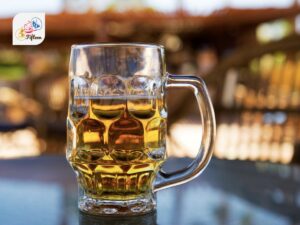
Beer
Beer was one of the most popular beverages in ancient Egypt, consumed daily by all social classes. It’s made from barley and emmer wheat through fermentation.
Ancient Egyptian beer likely had a sour and bready flavor, with a thick, murky texture and lower alcohol content, differing from modern beers. This beverage also held religious and cultural significance in rituals and offerings in this country.
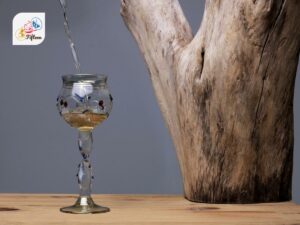
Wine
Wine was primarily enjoyed by the wealthy and used in religious ceremonies. It can be produced from grapes and other fruits. In the past, wine was stored in large jars with evidence found in tombs.
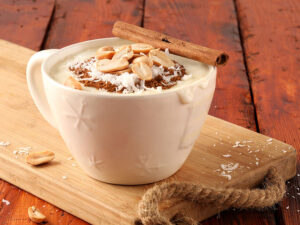
Water and Milk
Water and milk were common beverages for everyday consumption, especially among the lower classes.
Can You Buy Alcohol in Egypt Nowadays?
Yes, you can buy alcohol in Egypt today, but with some limitations:
What Are Traditional Dishes To Pair With Egyptian Beverages?
Let me show examples of 4 perfect pairings of Egyptian-origin delights with drinks to ensure you have the best experience with this cuisine.
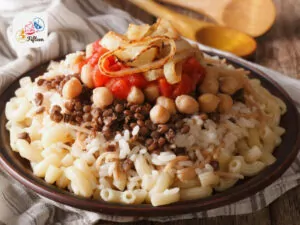
Koshary and Karkade (Hibiscus Tea)
Koshari, a famous national dish, pairs perfectly with the tartness of karkade.
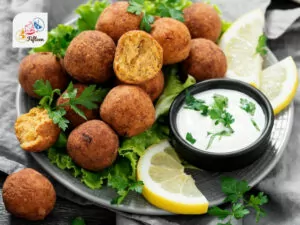
Ta’miya and Sugarcane Juice or Other Fruit Juices
This Egyptian falafel made from fava beans goes well with the natural sweetness of sugarcane juice or other juices.
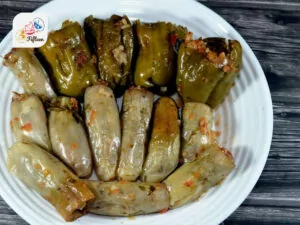
Mahshi and Carob Juice
The savory and slightly tangy stuffed vine leaves are nicely paired with the mild sweetness of carob juice.
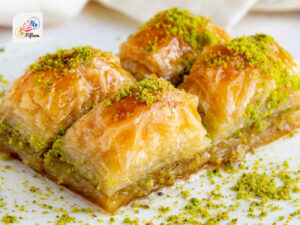
Baklava and Tea
The sweetness of baklava complements the refreshing and slightly astringent flavor of tea.
With a variety ranging from healthy juices to creamy drinks, you will surely find a favorite among many drinks in Egypt. Finally, if you enjoyed this article, leave a comment and share it so more people can discover Egyptian drinks.


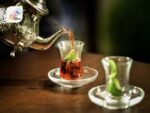
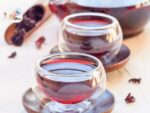

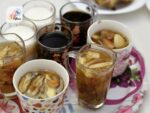
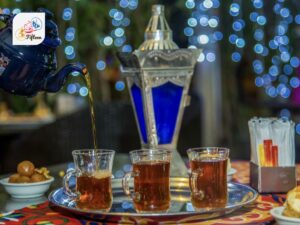
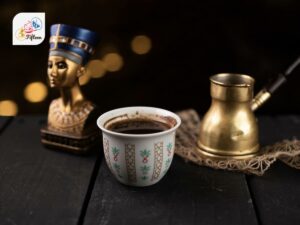
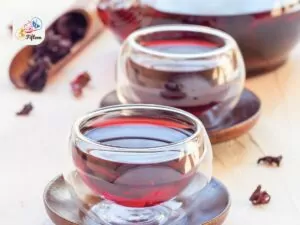
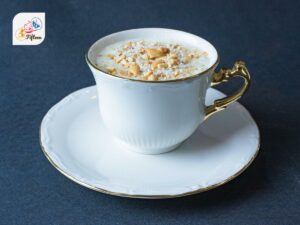
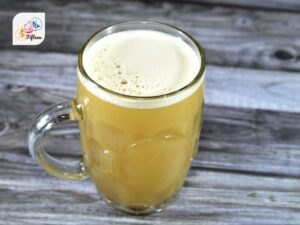
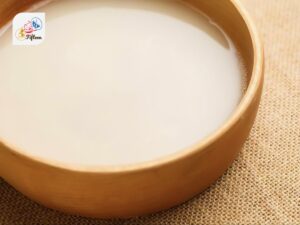
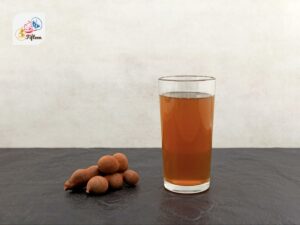
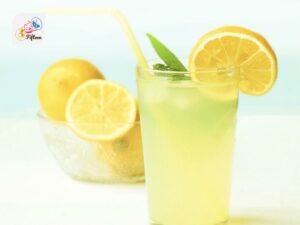
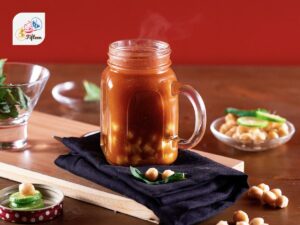
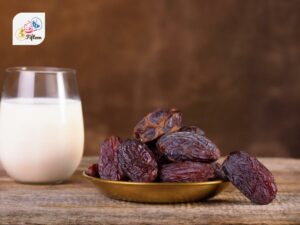
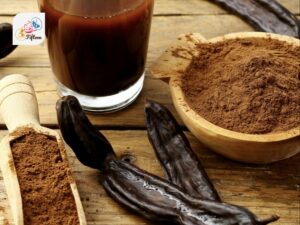
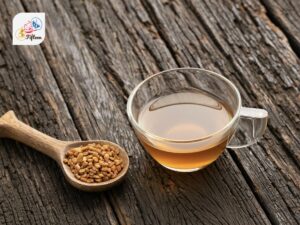
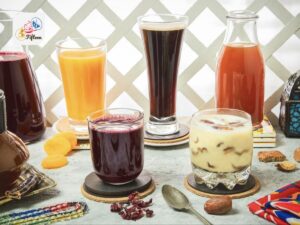
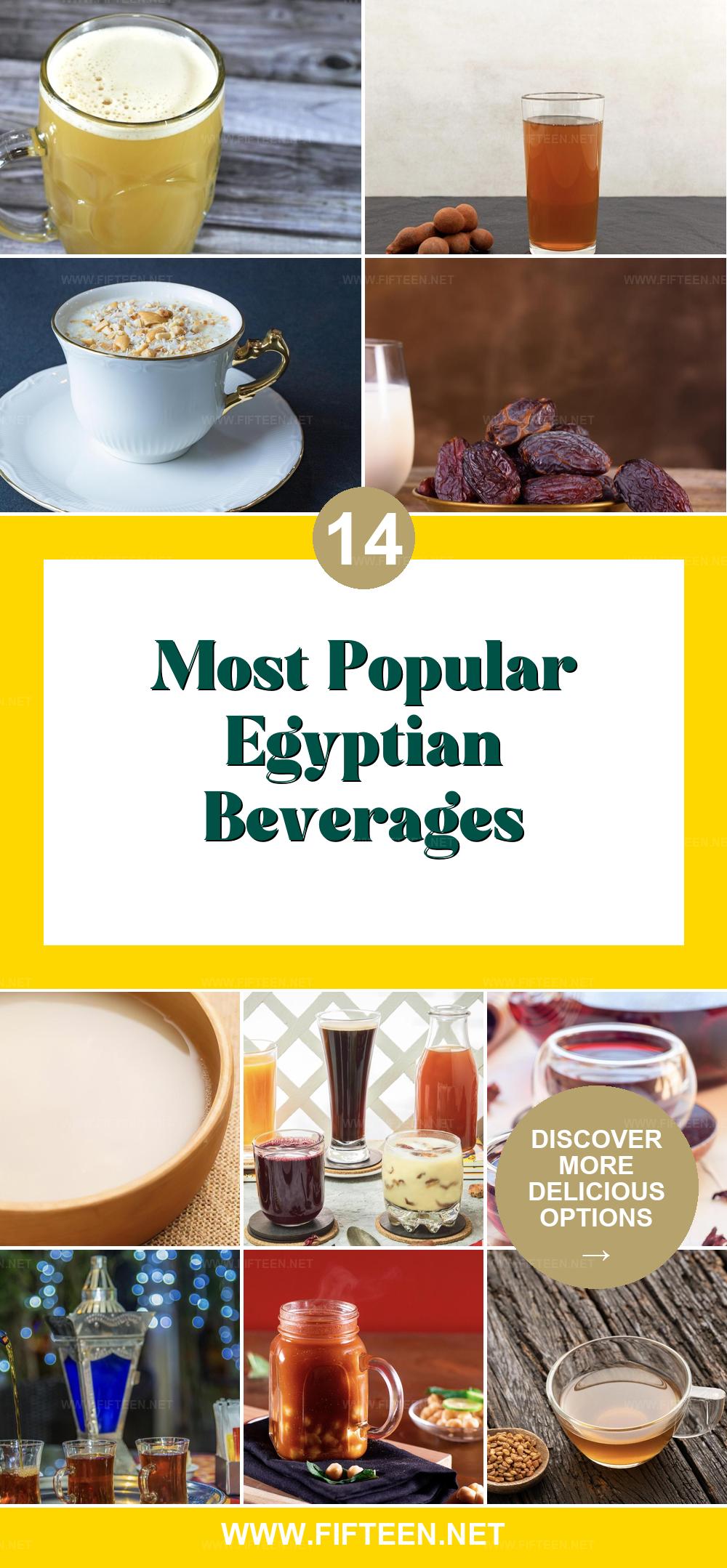
Jamie Scott
Editor in Chief, Senior Content Writer
Expertise
Home Cooking, Meal Planning, Recipe Development, Baking and Pastry, Food Editor, Cooking-video Maker, Western Food Evaluation Expert
Education
Le Cordon Bleu College of Culinary Arts
Local Community College, New York, NY
Jamie Scott is a skilled culinary expert and content creator specializing in Western cuisine. With over 15 years in the culinary field and formal training from Le Cordon Bleu, Paris, Jamie deeply understands how to blend nutrition with delicious flavors. His passion for cooking matches his commitment to making healthy eating accessible and enjoyable.
On Fifteen.net, Jamie brings a fresh perspective to classic dishes and beverages, offering readers insightful recipes, cooking tips, and a fresh view on meal planning that emphasizes taste, health, and simplicity.